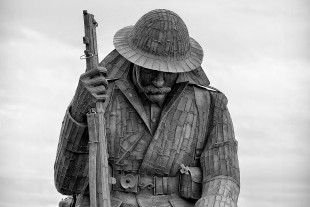 Dog racing will be returning to the Great State of Texas this November, giving struggling breeders,owners, and greyhound racing trainers somewhat of a financial break after a very dismal and uncertain year of track shutdowns.
Dog racing will be returning to the Great State of Texas this November, giving struggling breeders,owners, and greyhound racing trainers somewhat of a financial break after a very dismal and uncertain year of track shutdowns.
For Victoria residents who are diehard track racing fans, they will now be able to make the three-hour drive to Harlingen, Texas, in order to get their greyhound racing fix. The newly created agreement between track owners and breeders, completed last April, will set up a series of anticipated races at the Valley Race Park in Southern Texas.
Adam Wallish GRV Chief Executive
Next year, Victoria residents will have to go to the Houston area from November 2017 to February 2018, when the races move to the Gulf Greyhound Park, in La Marque, according to the Galveston County Daily News. The scheduled races will help to restore what is much-thought-of these days as a dying industry. Over the next couple of years, some 360 races are planned with a total purse distribution of around $2.2 million dollars.
Dog Racing In Greyhound Park, 2016
In August of 2015, Gulf Greyhound Park announced their plans to shut down the “Live” racing aspect of its track, while continuing to offer remote betting on races from tracks that were still operating greyhound racing. This, of course, did not go over well with breeders and trainers who were financially dependent upon continued live greyhound racing at the track.
The Gulf Greyhound Park owners were hoping to replace rows of empty seats outside, with rows of occupied monitors inside, where patrons would be able to watch a multitude of track races happening in other U.S. states, simultaneously broadcasted for their betting pleasure.
The Gulf Greyhound Park, La Marque, TX
Many breeders and kennel operators were further angered when the track announced plans to offer its attendees “Historical Racing,” also known as “Instant Racing” video machines that take wagers on old replays of races, and remove all of the identifying racing markings and data. These machines were briefly OK’d by the Texas Racing Commission in 2014; starting a maelstrom of controversy over the issue.
Then-Texas Racing Commission Chairman Robert Schmidt
“Without live racing, these are off-track betting facilities,” David Peck, Texas Greyhound Association President. – Galveston County Daily News.
Historical racing supporters believed that the machines would bring back the masses and reverse the tracks dismal attendance records. Track owners desperately were trying to find ways to combat growing operational revenue deficits.
Those opposed to “Historical Racing,” and what they considered as being casino style slot machines, won a victory in November of 2014 when an Austin Texas District Court Judge ruled that the “Historical Racing” machines were illegal under Texas State Law.
The “Dog Racing” Session in Austin Texas District Court Judge
The ruling was based on the fact that “Historical Racing” was never put through to the Texas State Legislature, and therefore was never voted on for legal approval. But the “Instant Racing” controversy continued to rage on until the beginning of this year when it was finally put to rest by the Texas Racing Commission; at least for now.
The Texas Racing Commission voted to repeal their initial endorsements of the use of “Historical Racing” machines in February of this year, assumedly ending their longstanding fight over the issue. The end to the “Historical Racing” controversy also ends a nasty ongoing feud between the pro-expanded gambling influences of the Texas Racing Commission, and the Legislative Budget Board that funds them, who considered “Instant Racing” games to be far too similar to Vegas-style slot machines.
Texas Track Racing Industry
The Texas Greyhound Association also threw in their weight, representing breeders and kennel operators who felt that their influence and livelihoods were steadily being pushed out of an industry that was founded by them. The new scheduled races, and the large potential purses over the next few years will help to amicably bring back together the Texas commission, board, and association so that they can now focus on successfully overhauling the Texas Track Racing Industry, which is still in dire need.
“With the agreement in place, the focus now can turn to modernizing the industry” – David Peck, Texas Greyhound Association President. – The Associated Press.
Texas Lt. Gov. Dan Patrick and state Sen. Jane Nelson
Many track owners still sorely lament the absence of video gambling machines at their establishments. The Texas State Legislature’s inability/unwillingness to expand its gambling laws past standard track betting has largely been seen by track owners as the main culprit to their failing industry.
According to SportsDayDallasNews.com, greyhound track betting in Texas has dropped like a stone over the past decade, losing at least half of its incoming revenue. Attendance has continued to wane as more and more people turn to other forms of available gambling, such as the lure of Texas’ only Native American Tribal Casino, and also competition from casinos in the state of Louisiana.
Texas Native American Tribal Casino
Texas animal activists were also overjoyed by the 2014 “Instant Racing” ruling, making the machines still illegal in the State of Texas. Grey2K USA, which is based in Massachusetts, has been relentlessly diligent in their cause to completely ban greyhound racing nationwide.
The group opposed “Historical Racing” as well, heavily lobbying against it; believing that the machines would actually help to prolong the animal track racing industry by infusing desperately needed video gambling income into the floundering race tracks. Ironically, a point that was shared at the time by both the animal activists and the track owners.
Grey2K USA claims that Greyhound Races result in thousands of dog injuries and hundreds of innocent deaths. The group is not alone in their beliefs. Greyhound racing has been recently banned in New South Wales, Australia. This may not seem relevant to Texas, but greyhound racing is only officially allowed and regulated in eight countries around the world: Australia,
United Kingdom, Ireland, Mexico, Macau, Vietnam, and five states in the U.S. – Texas being one of them.
This is not a very big club, and losing any member threatens the rest with also falling to social pressure like dominoes while facing the modern World’s growing negative attitudes towards animal track racing.
Texas Dog Racing
The future of greyhound racing in the United States is uncertain at best. For the Texas greyhound breeders, track racing enthusiasts, and those watching the sport from around the world, the industry received a much-needed reprieve with the Texas Racing Commission’s new agreement.
Although a bitter and long lasting inner feud has finally been put to rest in Texas Greyhound Racing, the ongoing political and ideological war still continues to relentlessly wage between animal activist groups and all other parties who rely their livelihoods or their entertainment on greyhound racing. In the age of social media, and the power that social media wields upon the World’s societies, our bet is on even more public scrutiny, and even harder financial times to come for an industry whose World, like their clientele, is getting smaller and smaller every year.
This article was written by Daniel Franklin – a member of UNESCO Youth Club of Austin, Texas team where he first started working as an administrator user support. In addition to the journalistic career, he works as an Online Community Manager in the Marketing sector in Victoria district and is responsible for the social media writings. Here is the link with his works devoted to 40 Super Hot slot.

Lorem Ipsum is simply dummy text of the printing and typesetting industry. Lorem Ipsum has been the industry’s standard dummy text ever since the 1500s.
